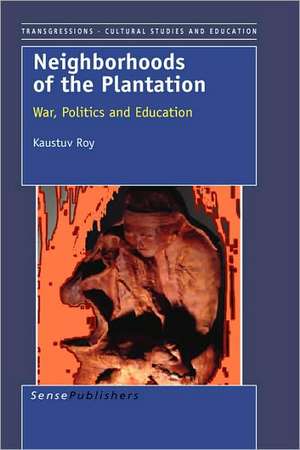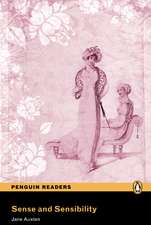Neighborhoods of the Plantation
Autor Kaustuv Royen Limba Engleză Hardback – 29 apr 2008
| Toate formatele și edițiile | Preț | Express |
|---|---|---|
| Paperback (1) | 323.87 lei 38-44 zile | |
| Brill – 31 dec 2007 | 323.87 lei 38-44 zile | |
| Hardback (1) | 549.21 lei 38-44 zile | |
| Sense Publishers – 29 apr 2008 | 549.21 lei 38-44 zile |
Preț: 549.21 lei
Preț vechi: 678.04 lei
-19% Nou
Puncte Express: 824
Preț estimativ în valută:
105.09€ • 108.42$ • 87.70£
105.09€ • 108.42$ • 87.70£
Carte tipărită la comandă
Livrare economică 22-28 martie
Preluare comenzi: 021 569.72.76
Specificații
ISBN-13: 9789087904333
ISBN-10: 9087904339
Pagini: 192
Dimensiuni: 156 x 234 x 13 mm
Greutate: 0.45 kg
Editura: Sense Publishers
Locul publicării:Netherlands
ISBN-10: 9087904339
Pagini: 192
Dimensiuni: 156 x 234 x 13 mm
Greutate: 0.45 kg
Editura: Sense Publishers
Locul publicării:Netherlands
Descriere
Descriere de la o altă ediție sau format:
The plantation is a slave society, a means and a system of usurpation of life energies and bodily productive capacities in the service of endless bankruptcy on the one hand and elite persuasions on the other. The book argues, in part, that war or State organized violence is one of the most efficient means of the elite transfer; the wreckage through war and destruction of ordinary livability opens up the human as organic compounds in the turning of human life into global plantation assets. More importantly, the book argues that this is possible only by means of certain ontological and epistemological deployments that make war on the human-ecological inevitable and even acceptable. This is where pedagogy comes in. The temporal being, the spatial being, and the linguistic being of the human-ecological are explored as three dimensions of captivity as well as the means of escape. The book rejects the politics of power as inimical to the very becoming of the human and posits the politics of strength as a new possibility that breaks with the plantation system of organized violence and vampiric wealth production.
The plantation is a slave society, a means and a system of usurpation of life energies and bodily productive capacities in the service of endless bankruptcy on the one hand and elite persuasions on the other. The book argues, in part, that war or State organized violence is one of the most efficient means of the elite transfer; the wreckage through war and destruction of ordinary livability opens up the human as organic compounds in the turning of human life into global plantation assets. More importantly, the book argues that this is possible only by means of certain ontological and epistemological deployments that make war on the human-ecological inevitable and even acceptable. This is where pedagogy comes in. The temporal being, the spatial being, and the linguistic being of the human-ecological are explored as three dimensions of captivity as well as the means of escape. The book rejects the politics of power as inimical to the very becoming of the human and posits the politics of strength as a new possibility that breaks with the plantation system of organized violence and vampiric wealth production.










